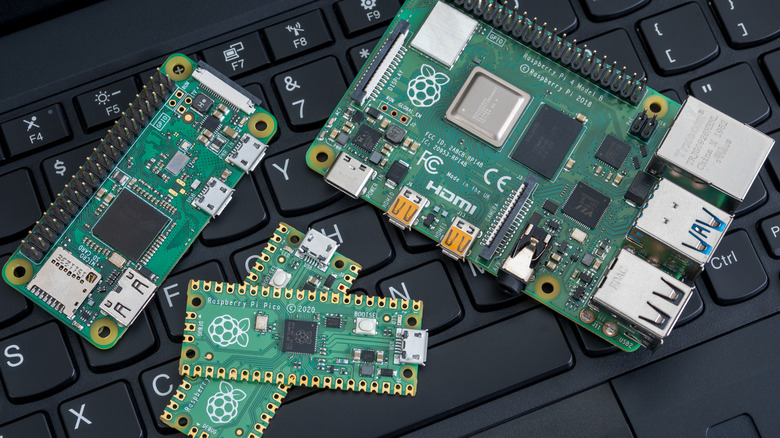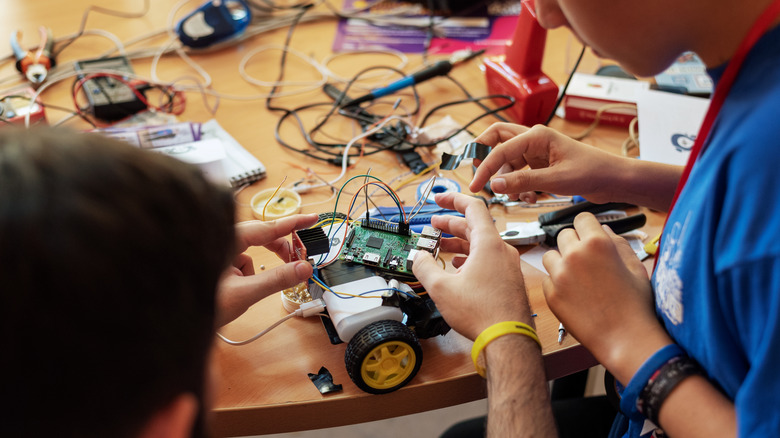Raspberry Pi Stock Begins To Rebound Just In Time For The Holidays
It's been a rough couple of years for tech heads. Due to the Covid-19 pandemic and other forces impacting the efficiency of the global supply chain, it's been hard to get products out of the door and into the hands of consumers. While almost every sector known to man was affected, it was especially hard for tech considering the massive ongoing demand for semiconductors, batteries, and the like. Not only did those products become more expensive to produce due to the rising cost of raw materials, but they also took longer to make as fabricators had to operate at a reduced capacity to meet social distancing requirements.
Those seeking graphics cards were perhaps hit the hardest thanks to explosive demand from crypto miners and resellers, which only exacerbated the issue. Cameras were also pretty hard to come by, with many jumping to content creation in order to help keep their businesses afloat or fill their downtime during the pandemic. The Raspberry Pi wasn't immune to these events, but there's good news on the way for those who are still having a hard time tracking them down.
More than 100,000 units on the way
Whether you're a hobbyist or you're looking to buy a gift for the tinkerer in your life, you'll be happy to know that the global availability of Raspberry Pi devices will improve considerably by year's end. According to an official blog post, more than 100,000 units have been seeded into official reseller channels, with evidence of stock already starting to show — just in time for the holidays.
It's said that Zero W, 3A+, 2GB, and 4GB varieties of the Raspberry Pi 4 are counted among the new inventory injection. Those units are listed in order of total popularity, by the way; the Zero W and 3A+ will come into stock sooner and more plentiful than typical Raspberry Pi 4 models, as there's not as much commercial demand for the former.
And this is only the beginning. Supply is expected to normalize in the first half of 2023, and units will be so plentiful by the second half of the year that the company is planning to remove purchasing restrictions on some single-unit models it previously limited, like the Zero W. Sadly, those buying Zero units will see a $5 price hike across the board, which is pretty modest, and totally fair considering the company had previously sold some products at lesser profits to avoid passing rising production costs onto consumers. The Zero and Zero W were the only ones still being sold at a total loss, so it's a reasonable ask.

